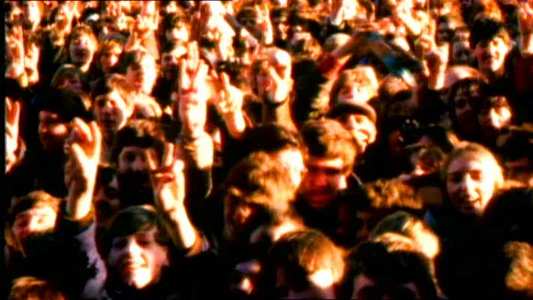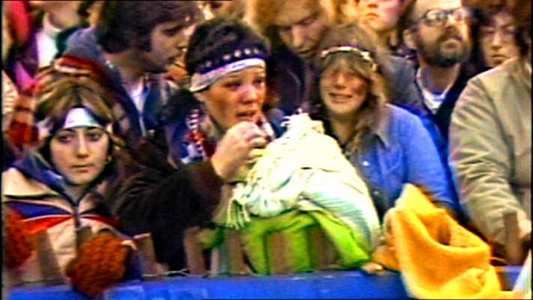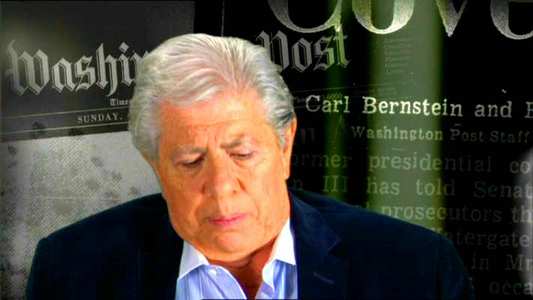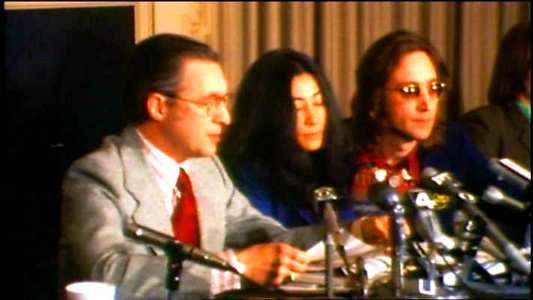Review of U.S vs John Lennon, The
Introduction
John Lennon and Yoko Ono. Quite possibly the most famous couple in pop history, the former for being (apparently) a musical genius with the latter taking the brunt of the blame for The Beatles split. Both were well-known peace activists in the US during the Vietnam-era, and this is topic of this documentary.
For a while, The Beatles were the biggest band on the planet. Any glimpse of the band brought hysteria and every utterance brought headlines around the world. One of the prime examples of this was the Lennon off the cuff declaration that "We`re more popular than Jesus now." Within months this harmless comparison had been taken to heart by the American Bible Belt who organised mass burnings of records, cancelled tour dates and banned The Beatles from their airwaves. Complete lunacy from people who really should have understood the context of what he was saying, but I`m pretty sure Lennon learned a valuable lesson about how powerful his voice really was.
Prior to leaving the moptops, Lennon had married Yoko Ono in March 1969 and spent their honeymoon period in Amsterdam. Knowing that wherever they went would attract massive media coverage, the duo decided to stage a "Bed-In" for peace. Lennon had already spent the previous couple of years protesting about the Vietnam War and this was the ideal chance to highlight the cause on an unprecedented level. The germ of an idea for a protest song came during this period as well. Based upon a quote given to a journalist, Lennon had an idea for a song and thus an anthem for the peace movement came to life in Give Peace A Chance.
In December of the same year, the couple placed billboard advertisements in eleven major cities of the world stating "War is Over! If You Want It - Happy Christmas From John and Yoko". Oddly enough, another song arose from this gesture as well. It wasn`t all lying in beds though, with Ono as a performance artist it was inevitable that there would be more conceptual protests. And so it came to pass that Lennon and Ono appeared in a big white bag for a press conference in a stunt dubbed `Bagism`. This stunt was about reducing stereotypes and prejudice by not being able to see other people and therefore about total communication rather than responding based on words, appearances and prejudice.
Lennon and Ono were becoming quite prominent activists and so attracted the attentions of the Nixon administration and the FBI. In 1972 deportation orders were served on Lennon and Ono, triggered by plans to run a series of concerts in the run-up to the 1972 presedential election. This wasn`t just any election though, this was the first where the vote was being extended to 18 year olds and Lennon`s idea was to encourage youngsters to use their vote as an anti-war vote which inevitably meant against Nixon. Thus began a three year battle with Lennon continually under a 60 day deportation order.
This film tells the whole story in more detail with contributions from both sides of the political spectrum (but mostly left) with the likes of Gore Vidal, Tariq Ali, Geraldo Rivera, Ron Kovic, G.Gordon Liddy, Angela Davis and Carl Bernstein.

Video
Quite impressive visuals for this documentary, especially during the talking head portions. Lots of archive footage of varying degrees of quality, nothing too bad though.

Audio
This documentary comes with a 5.1 mix, which was a bit of a welcome surprise, and is well subtitled.

Features
Bit of a mixed bag really. All are relatively short, alternating between 5 to 10 minutes in length. Some, such as the Two Virgins Cover, lack context for those viewers like me who are not familiar with the output of Lennon. A few of the extras make comparisons between the political climate of the Nixon era and the Bush Jnr era, with most people actually claiming that it is far worse now.
The last extra on here is Yoko Ono reading out the letter she wrote to the Parole Board when Mark Chapman appeared in front of them. It`s very moving, sure, but I`m really not sure what context it has here or whether it`s actually right to share it with viewers.

Conclusion
I was never a big Beatles fan and to be honest I always thought John Lennon was a bit of an old hippy who took too many drugs. I also thought his most celebrated songs were a little on the light airy fairy side and didn`t really identify with them or like them. Frankly the only song of his I actually like is Jealous Guy and only because Roxy Music covered it. In short, I`ve never had that much of a good opinion of him.
That said, I was quite moved by this film and whilst I`m still not that big a fan of his music, I now understand a bit more of what drove him and how badly he was treated by the authorities. I guess all I`ve been missing is the context, being only a toddler during this phase of world history, I never saw it or lived it. You can read books and become aware of certain things, I was certainly aware of the bed-in, but you just look back and wonder "Why?" Hearing the testimony of some of the people involved here, you can really appreciate just how much of an impact Lennon made that the morally corrupt Nixon administration decided that they would try to deport him rather than risk losing power due to him speaking out via his conscience. Free speech is an important part of democracy and attempts to silence it are wrong.
Where this film lets itself down is in trying to present Lennon and Ono as a couple throughout this period. I wasn`t aware of this myself until I did some research after watching the DVD but Lennon and Ono had split during what was called the `Lost Weekend`, which actually lasted between 1973 and 1975. I feel this is disingenuous and spoils it a bit for me. I also don`t really understand the way that the assassination of Lennon is tacked on the end. It feels tacky and I don`t understand the context. Lennon was making a bit of a comeback with the Double Fantasy album and had just about retired from his activism days. Why include it?
Still, it`s a great film overall and really interesting. Filled in some gaps for me and I know feel why people so readily place Lennon at the top of lists for best songwriters. It`s not so much about the music, which I still feel is pretty lightweight, but it`s about the times and the feelings evoked by the music. Lennon is probably the most famous musician activist but he has inspired many since, but none can say they`ve had the same impact. To be honest, we could probably do with his ilk today…
Your Opinions and Comments
Be the first to post a comment!